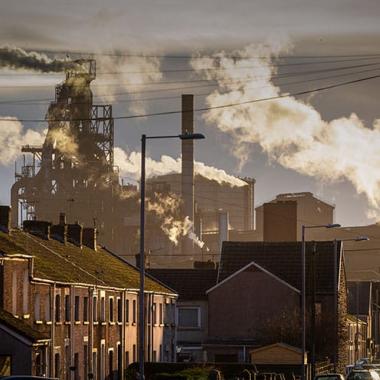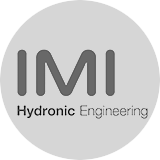
Close The Gap Campaign
We are helping all sectors of the gas industry work collaboratively to upskill installers, get consumers the energy savings they signed up for and the UK on track to meet its 2050 net zero target.
- We waste enough energy to heat Wales
- Boilers are not A-rated out of the box
- We will miss our net zero 2050 target
STOP WASTING TIME SO WE CAN STOP WASTING ENERGY
We are a group of individuals and companies campaigning for better installation standards in domestic heating.
Consumers have been massively let down by an industry that gas sold 20 million condensing gas boilers without up skilling its workforce to fit them correctly.
We have a skills gap and an efficiency gap that is costing consumers £1000s and is hugely detrimental for the environment.
We have put together a raft of recommendations to get us closer to, or even improve upon, boiler label efficiencies.
OUR SUPPORTERS, SO FAR
WHERE IT HAS GONE WRONG FOR DOMESTIC GAS
Many of us in the industry know that 99% of installers lack the knowledge to setup a gas boiler to run as it was designed to. As such condensing boiler installations are often little more efficient than non-condensing boilers, but they are still sold as an ‘upgrade’. This is a huge industry failing that we want to put right.
How did this happen? The short answer is that condensing boilers were hailed as a great leap forward in home heating efficiency that could contribute to decarbonising homes. In reality the technology was made mandatory without any corresponding investment in upskilling the workforce or making modulation controls mandatory (a vital part of correct condensing boiler operation). Condensing boilers are not A-rated out of the box, they must be configured correctly, but 15 years on it is still not widely understood save for a handful of self-taught installers.
So, whilst boiler sales have ballooned over the period, installation standards have slid and the industry has instead moved towards fast-track, next-day boiler installations that have de-skilled the process to make it cheaper to deliver. Gas boilers still work, which is why as an industry we have got away with it, but the real cost is much higher than we realise.
Our research suggests that the vast majority of condensing gas boilers operate 10-25% under their A-rated efficiency banding. Our high rate of premature boiler replacement (because we have to or are wrongly advised to) also means few of our boilers go their predicted lifespan of 22 years. This costs consumers £1000s and throws us off our target for net zero by 2050. (See Healthy Heating Standard for all references.)

What needs to change?
The UK is under a legal obligation to reach net zero by 2050. It is time to take heating system design seriously so that we might deliver real efficiencies rather than ‘on-paper’ efficiencies and leave boilers in place for longer. We have identified five areas for change. To be clear, it is not enough to address just one area in isolation, all five need to be tackled if we want to see genuine change:
1. More effective building regulations
The Future Homes Standard is the Government’s latest proposal to improve energy efficiency in homes. Homes account for 20% of greenhouse gas emissions in the UK, which makes domestic energy efficiency an important area for improvement. The Future Homes Standard is still at the consultation phase (which is before it is put into law). For new build homes the proposals focus on better insulation measures so as to reduce the requirement for heating to an absolute minimum and phasing out gas boilers from 2025.
The proposed new standards for existing homes attempt to address some of the long standing problems in domestic heating that lead to inefficiency, however not at all effectively. Whilst boiler oversizing is recognised as a problem, the regulations do not phase out gas boilers that have a minimum kWh output higher than the maximum heat requirement of most UK homes. In other words, boilers with a '1:3 modulation ratio' are likely to always be oversized.
The current regulations require all boilers to be A-rated and all new combi boiler installations to be fitted with an advanced energy saving measure (usually an ‘advanced’ heating control) under the 2018 regulations known as Boiler Plus.
Whilst Boiler Plus attempted to improve efficiency, the regulations were diluted with the inclusion of basic on/off controls that are not appropriate for modern ‘modulating’ boilers. There are no proposals under the proposed regulations to ban on/off controls or to extend the regulations to other boiler types.
The current regulations also fully ignore the role correct heating system design and setup plays in achieving A-rated efficiencies at all. To put it another way, condensing boilers are not A-rated ‘out of the box’.
Our recommendations
The only way to achieve A-rated efficiencies is for the Future Homes Standard to make compensation controls and hydronic balancing mandatory for all combination and system boiler installations. Compensation controls are readily available and cost no more than on/off smart controls. However the new regulations must also require that all boilers are compatible with all compensation controls. At present some boiler manufacturers limit compatibility to their own products. A universal requirement would improve consumer choice and make it easier for installer training.
The Future Homes Standard must also require hydronically balanced systems. So much inefficiency comes from unbalanced radiators but it is feature that is entirely overlooked. Flow setting (balancing) TRVs are relatively new to the domestic market but have shown efficiency savings of upto 15% and are cost effective to install.
All that said, building regulations only work if they are ‘performance tested’, i.e. monitored in the home. Despite reasonably strong existing efficiency standards for new build homes, in 2018 only 1% of new homes were found to have been built to an A-rated standard. It is clear that the regulations have to be better enforced or they are not worth the paper they are written on.
2. Monitoring efficiencies in the home
In 2009 The Energy Saving Trust reported on a 12 month field trial of 30 A-rated condensing combination boilers and 10 A-rated condensing regular boilers. With an average efficiency of 83% for combi boilers and 80.3% for heat-only boilers, the report concluded that “the in situ performance of the boilers is significantly less than the rated SEDBUK seasonal efficiency” (SEDBUK is how we measure boiler efficiency in the UK).
This does more than just raise questions over the integrity of boiler labelling for consumers. SEDBUK efficiencies are still used for EPC reports. For non-condensing boilers owners, an EPC report will recommend upgrading to a condensing boiler in order to move up an energy band, but in reality the uplift actually achieved is likely to be marginal.
Our recommendations
Actual efficiencies can only be known by requiring boiler manufacturers to provide consumers with the aggregated efficiency of their heating system. This could easily be achieved by monitoring return temperatures of heating water and providing a digital display on the front of the boiler. This is powerful data that could also inform government, particularly as EPC efficiencies are wildly out and cannot therefore give an indication of true emissions reduction.
Digital monitoring could also be used as an incentive to installers to set the system up correctly. For example, if boiler manufacturers only offered extended warranties for installations that operate over a benchmark efficiency each year, then the length of the warranty would depend on how well it has been specified and setup.
3. Installer training
Installer training is at the heart of getting this right. Yes we need strong regulations and effective ways of monitoring efficiencies, but we are completely reliant on installer skill to bring it all together correctly in the home. In many ways installers have been as badly let down as consumers and the vast majority do not know they should be working very differently. Installers need support, effective training and boilers and controls that work together effortlessly.
Our recommendations
A big part of the new regulations has to be mandatory training on correct heating system design for condensing boilers. We need a nationally recognised standard that installers work to and then training on how to meet that standard (NB we have had to develop our own higher standard – the Healthy Heating Standard – to deliver our Hero Support service). Most boiler manufacturers have training facilities that they can use to assist in the delivery of this training.
What is important however is that installers get support ‘on the job’ to put their training into practice and are helped to undertake regular CPD sessions to stay up-to-date. A heating design qualification will be as empty as unenforced building regulations if training is watered down to a multiple choice test that everybody ‘passes’ and forgets.
4. Better consumer guidance
In 2011 the Carbon Trust reported on a field trial of 27 A-rated condensing system boilers. The research found that “a significant number of them [boilers] were found to be substantially over-sized for the properties in which they were fitted and this is believed to be common practice in the UK”.
The report highlighted market failures that encouraged oversizing when it identified that “the average peak heat load of UK houses is around 6kW, but the size ratings of new boilers typically range from 10kW to 30kW”. Such is the practice for oversizing that consumers and installers often push for bigger boilers, just in case. Sadly the opposite is true and the bigger the boiler, the less efficiently it can operate all year round.
Much of this comes back to a complete lack of knowledge that is leading 99% of installers astray. This is only made worse by the prevalence of combi boilers where the focus is on ever bigger capacities for hot water production at the expense of heating system efficiency. A 2016 EU report into heating and cooling in Europe stated that “The technical lifetime for small gas boilers with a thermal capacity of below 25 kWth is 22 years”. According to a number of boiler manufacturer websites, boilers are expected to last 10-15 years, but we know consumers are advised to replace from as early as 7 years due to problems early on.
Whether our culture of premature replacement is a result of 1) mis-advice to replace rather than repair or 2) irrecoverable damage caused by poor setup, is yet to be quantified. What we do know is the UK has one of the highest turnover of boilers in Europe as boilers are replaced twice or even three times in a 22 year period instead of once at the end of 22 years.
Our recommendations
Boiler manufacturers could vastly improve consumer and installer understanding if they present more relevant information about their boilers on the label and in their consumer literature, as follows:
- Labels need to show that boilers operate within a range of heating outputs, for example 2kW- 18kW or 8kW-20kW, instead of just the maximum output in the boiler model’s ‘name’.
- Boilers should be graded not on their ErP efficiency, which always has to be at least 92%, but on how low their minimum kW output is. The lower the minimum output in the kW range, the more efficiently the boiler can operate all year round. For example:
- 2.5kW or less minimum output – A-rated
- 2.6-4.5kW minimum output – B-rated
- 4.6-6.5kW minimum output – C-rated
- 6.6-8.5kW minimum output – D-rated
- 8.6kW or over – E-rated
- Labels need to give a 'quick-guide' to heat requirements for typical properties that can improve our understanding of heating requirements. For example, As a rough guide your property will need a maximum heat requirement as follows:
- 1 bed purpose built flat - 4kW
- 2 bed terrace - 6kW
- 3 bed semi - 8kW
- 4 bed detached - 10kW
- 5 bed detached - 12kW
- Consumer literature should provide clear guidance that it is the installer’s responsibility to reduce the maximum output of the boiler to meet the heat loss survey. This will help with one-sized-fits-all boilers.
- Combi boiler labels need to show hot water output in litres per minute (LPM). The current practice of using the hot water output (commonly 24kW- 42kW) as part of the model name distorts consumer and installer understanding of home heating requirements.
- Combi boilers need to a carry health warning that opting for a bigger hot water flow rate may compromise the efficiency of the heating system and that a system boiler may be more suitable for homes with multiple bathrooms.
- Consumer labels should advise of the predicted lifespan of the boiler assuming it has been set up correctly. There is too much misinformation in the market and this is leading to a distorted view of how long a boiler will last.
5. A collaborative approach
A high level view of the UK boiler market shows it to be highly competitive and market share strategies take precedence over ensuring the correct setup of condensing boilers. A more collaborative approach would result in a market where all boilers worked with all compensation controls and manufacturer training included correct heating system design as a vital competent to achieving A-rated efficiencies from their boilers.
1.7 million boilers are fitted each year in the UK, around 950,000 of which go into privately owned homes. This is a huge and lucrative market and attracts a lot of interests from inside and outside of the industry. Alongside long-standing operators such British Gas and Help-Link, companies as diverse as the AA and Utility Warehouse that have entered the market and a great deal of city money has been ploughed into setting up new online boiler quote companies.
There are also many ‘lead generation’ companies that collect customers’ details online and sell them on to other lead companies or directly to installers. Boiler manufacturers have their own market share battles. Some have grown exponentially as a result of the huge sales in condensing gas boilers. In an battle to retain market share, boiler manufacturers have offered longer and longer warranties, now upto 14 years, and used financial rebates on boiler sales as a way to entice installers it fit their boilers exclusively.
The heating controls market has also seen many developments. Third party developers such as Nest, Hive and Tado have entered the market with some great products, but they are rarely fully compatible with modulating boilers. Some boiler manufacturers have opened up their boilers to be compatible with third party controls - although not always successfully - whilst others restrict compatibility to their own products. Weak legislation in this area has not helped to force manufacturers to work together and in fact government lobbying from some sectors of the industry (but not all) to slow down the mandatory implementation of compensation controls shows that self-interest continues to win out over consumer interest.
Our recommendations
If we put as much effort into fixing the current problems as we are pushing for hydrogen boilers, we’d see a greater emissions drop for a good deal less investment than adding hydrogen mixes to gas supplies. Which is not to say hydrogen should not be seriously considered, rather that we should not overlook the simple measures in our rush for ‘easy’ fixes.
There are also people and companies already doing great work to develop really high tech products and bring best practice into the mainstream, but they are getting side-lined too often. We need to recognise the higher standards where they exist and roll them out to everyone as the minimum standard we work to.
As an impartial party to the industry, we are offering our services as government advisors, industry mediators and mass recruiters to a bigger cause. It is time to fit gas boiler correctly, it is time to upskill engineers in techniques they will need for low carbon technologies anyway and it is time to simplify the quagmire that is the boiler and controls market for the benefit of consumers and installers alike.
This needs a joint approach and we are here to bring the industry together. We stand for positive change and actual change. On paper efficiencies are simply not acceptable, the market must be made more robust to ensure we reduce our gas consumption to reduce our emissions.






